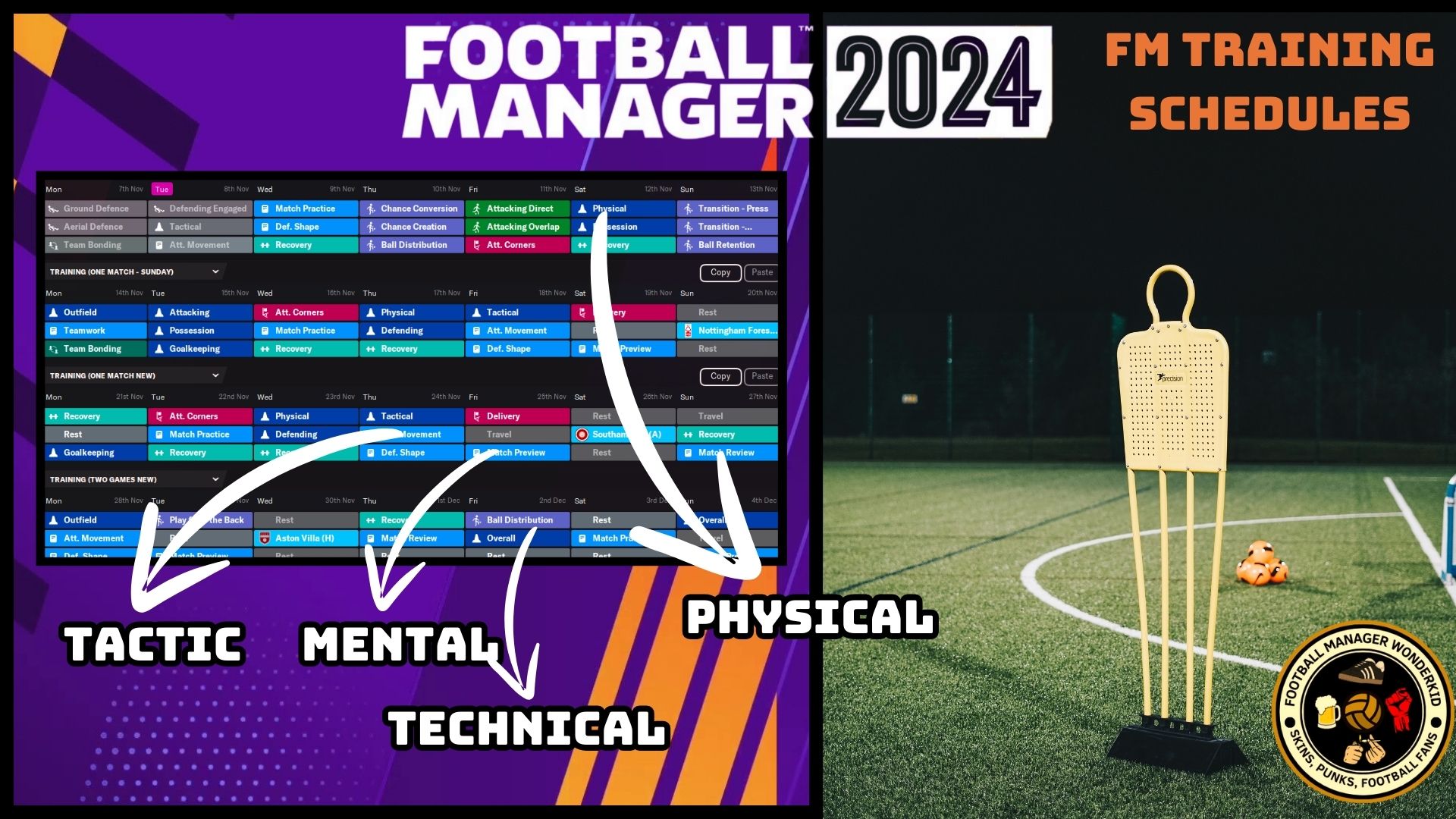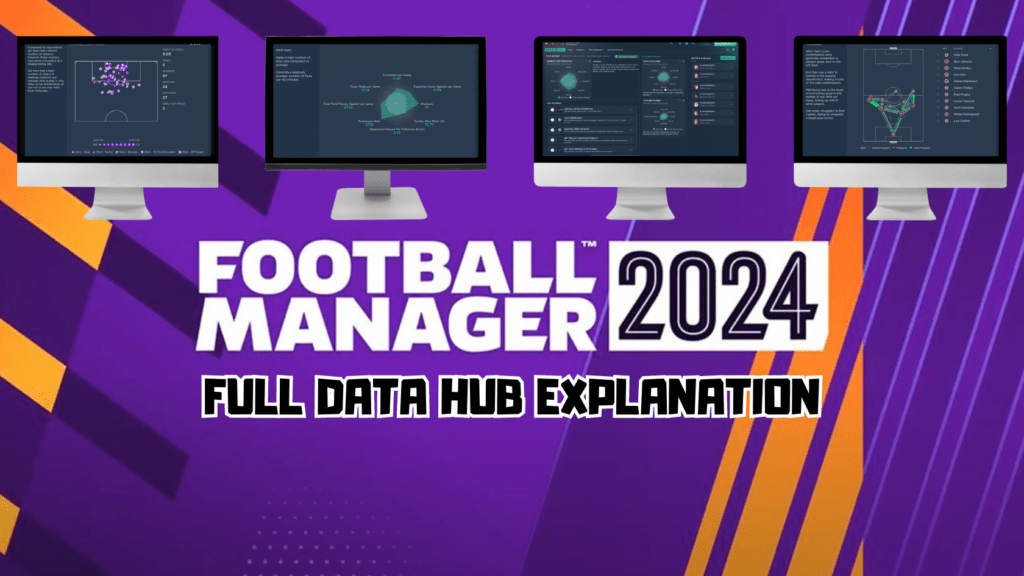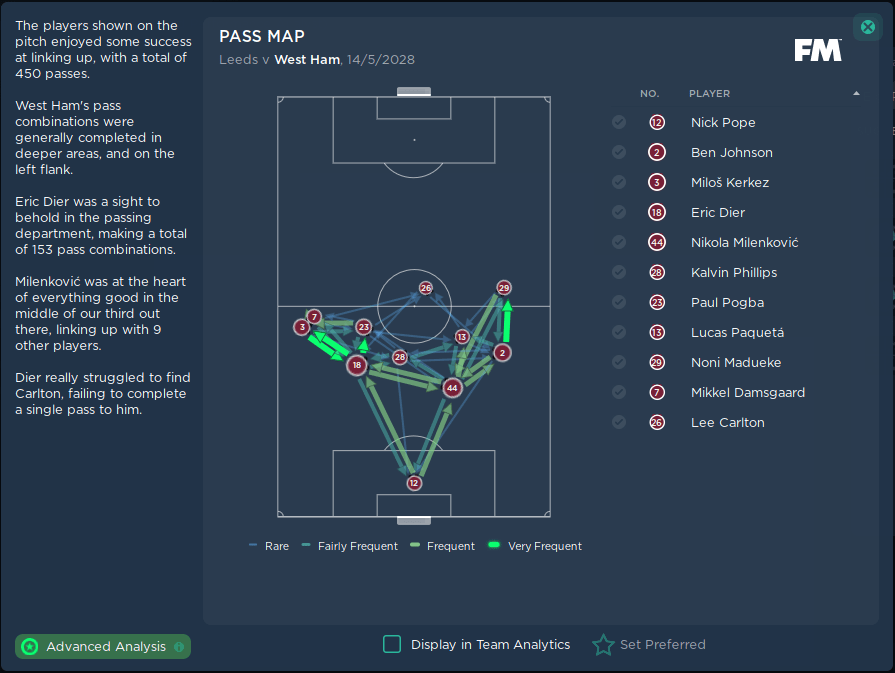| FM Training Schedules: Key Takeaways |
|---|
| • Balanced schedules boost overall team performance • Individual focus training accelerates player growth • Pre-season sets the foundation for success • Data Hub insights optimize training effectiveness • Adapt schedules to match frequency and player condition • Different phases of the season require unique approaches |
Your Football Manager training schedule can make or break your season. Get it right, and you’ll see your players develop rapidly, your tactics come to life, and your results improve dramatically. Get it wrong, and you’ll be battling injuries, poor form, and inconsistent performances.
FM Training Schedules Optimization
Training Categories
Physical
Stamina, Strength, Pace
Technical
Ball Control, Passing, Shooting
Tactical
Positioning, Decision Making
Mental
Determination, Work Rate
E.g. FM Training Schedule – Matchday: Saturday
Training Intensity Spectrum
Adjust intensity based on fixture congestion, player fatigue, and season phase. Balance high-intensity sessions with recovery to optimize performance and prevent injuries.
This basic guide will show you how to create, implement, and optimize your FM training schedules for maximum impact. Let’s turn your squad into a well-oiled machine.
Understanding the Basics of FM Training Schedules
In a Football Manager, your training schedule is the engine that drives player development and team cohesion. Here’s what you need to know to get started:
- Training Categories: Physical, Technical, Tactical, and Mental
- Intensity Levels: Low, Medium, and High
- Session Types: Team Cohesion, Match Preparation, and General Training
Each training session impacts different aspects of your players’ abilities. Balancing these elements is crucial for overall team improvement.
The Perfect Weekly Schedule: A Blueprint for Success
Here’s an example of a balanced weekly schedule during a regular season week with one match:
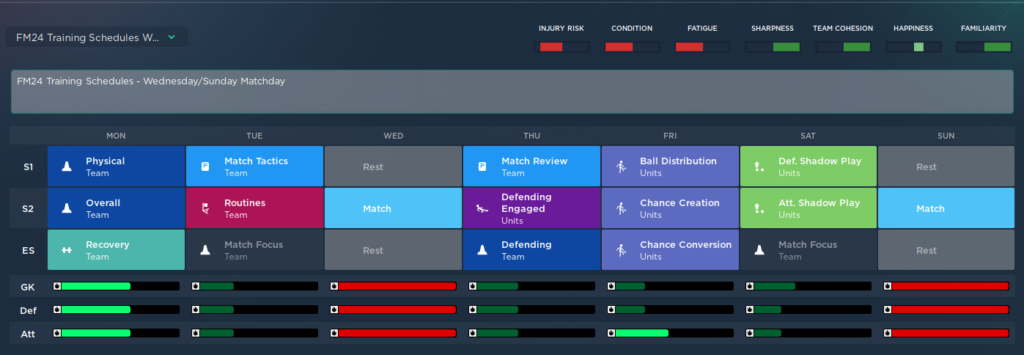
This schedule provides a good mix of all training categories while preparing for the upcoming match and allowing for recovery.
Tailoring Individual Training Focus
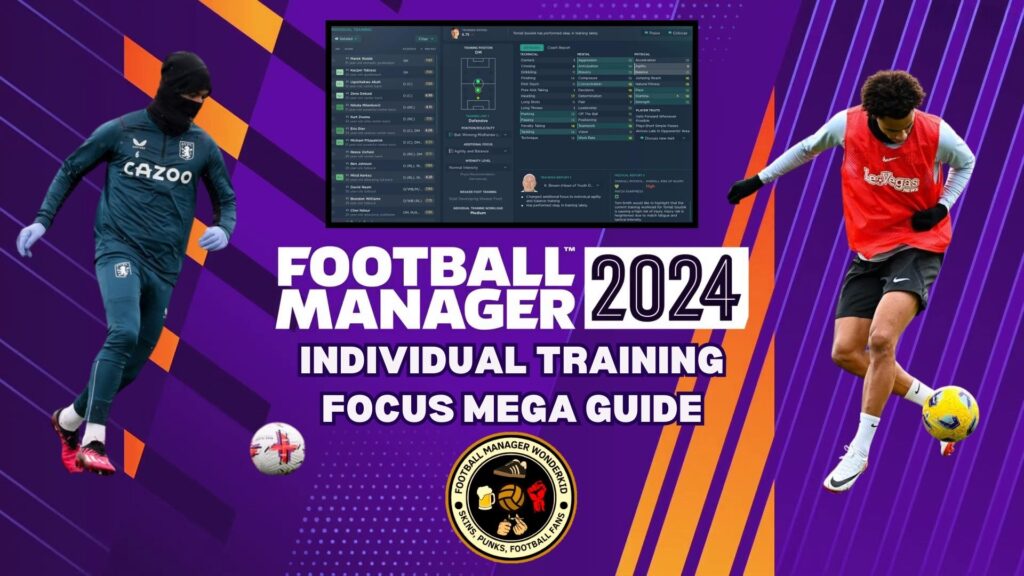
While team training forms the backbone of your schedule, individual focus can turn promising youngsters into world-class talents. Here’s how to approach it:
“Individual training is where good players become great, and great players become legends.” – Marcelo Bielsa
Key Individual Training Tips:
- Focus on a player’s weakest attributes that are crucial for their position
- Assign additional technical training for young players
- Use mentoring groups to improve the mental attributes of younger players
- Adjust training load based on the player’s natural fitness and injury proneness
Pre-Season: Building the Foundation for Success
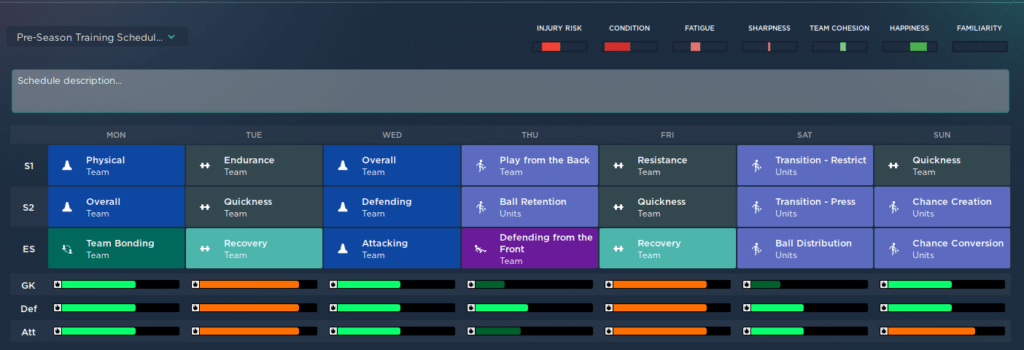
Pre-season training is your opportunity to set the tone for the entire campaign. Here’s a breakdown of an effective pre-season schedule:
| Week | Focus | Intensity |
|---|---|---|
| 1-2 | Physical Conditioning | High |
| 3-4 | Tactical Familiarity | Medium-High |
| 5-6 | Match Sharpness | Medium |
Leveraging the Data Hub for Training Optimization
The FM Data Hub is a goldmine of information that can help you fine-tune your training schedules. Here’s how to use it effectively:
- Monitor player attribute changes over time
- Track team performance metrics to identify areas for improvement
- Analyze training performance reports to adjust schedules
- Use comparison tools to benchmark against other teams
Training Performance Metrics
Here’s an example of what you might see in your Data Hub for training performance:
| Metric | Last Month | This Month | Change |
|---|---|---|---|
| Average Training Rating | 7.2 | 7.6 | +0.4 |
| Physical Condition | 92% | 96% | +4% |
| Tactical Familiarity | 85% | 91% | +6% |
| Team Cohesion | 78% | 83% | +5% |
Use these metrics to gauge the effectiveness of your training schedules and make data-driven decisions.
Balancing Training with Squad Management

Effective training goes hand-in-hand with smart squad management.
Squad Rotation and Training Load
Consider the following when managing your squad’s training load:
- Rotate players in training to prevent burnout
- Reduce intensity for players returning from injury
- Increase load for players lacking match fitness
- Tailor schedules for different player roles and positions
Advanced Training Strategies
Periodization in Football Manager
Implement periodization to optimize performance throughout the season:
- Preparation Phase: Pre-season focus on physical conditioning
- First Competitive Phase: Emphasis on tactical work and match preparation
- Winter Break: Opportunity for physical recalibration
- Second Competitive Phase: Maintain physical levels, focus on tactical refinement
- Peak Phase: Fine-tuning for crucial end-of-season matches
Training for Different Playing Styles
Adjust your training focus based on your tactical approach:
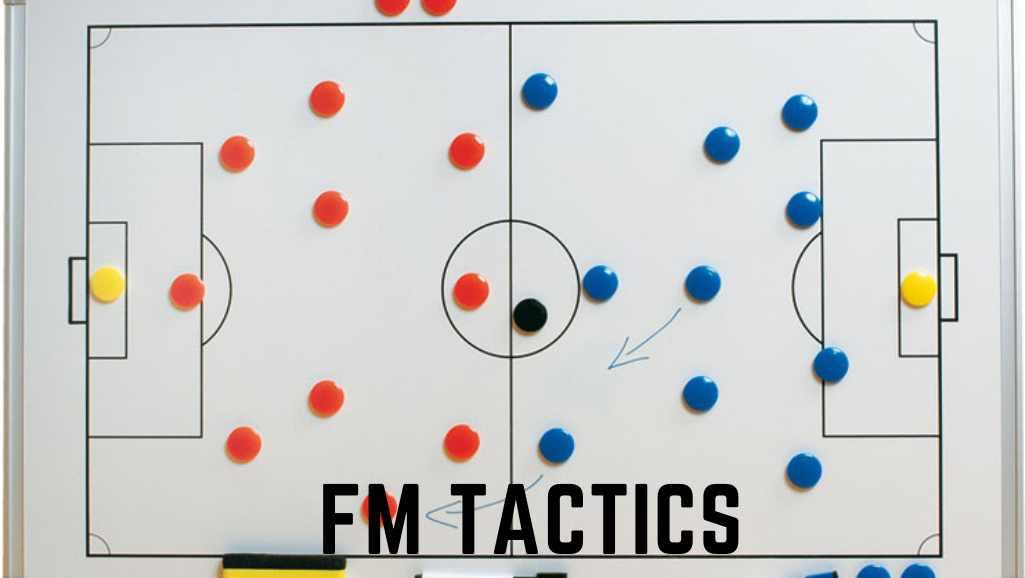
Troubleshooting Common Training Issues
Even with the best-laid plans, you may encounter training challenges. Here’s how to address them:
- High injury rates: Reduce training intensity and focus on injury prevention
- Low morale: Incorporate more team bonding sessions
- Slow attribute growth: Review individual training focuses and mentoring groups
- Poor match fitness: Increase match preparation sessions and arrange friendlies
“Practice makes permanent.” – Bobby Robson
Mastering Football Manager training schedules is an art form that combines science, intuition, and adaptability. By balancing team needs with individual development, leveraging data insights, and staying flexible throughout the season, you’ll be well on your way to building a dynasty.
FM Key Training Tips
Balance Workload
Alternate high and low-intensity sessions to prevent injuries and maintain peak performance.
Use Data Hub
Regularly analyze training data to track progress and identify areas for improvement.
Team Cohesion
Prioritize team cohesion exercises early in the season to build chemistry.
Individual Focus
Tailor individual training to player roles and areas needing improvement.
Periodization
Adjust training focus and intensity based on the phase of the season.
Rotate Drills
Vary training exercises to maintain player engagement and cover all aspects of the game.
Remember, the perfect training schedule evolves with your team. Keep experimenting, stay attuned to your players’ needs, and don’t be afraid to make bold changes when necessary.
For more advanced tactics, training tips, and FM24 and FM25 insights, explore FM Wonderkid guides. May your virtual trophy cabinet overflow with silverware!

